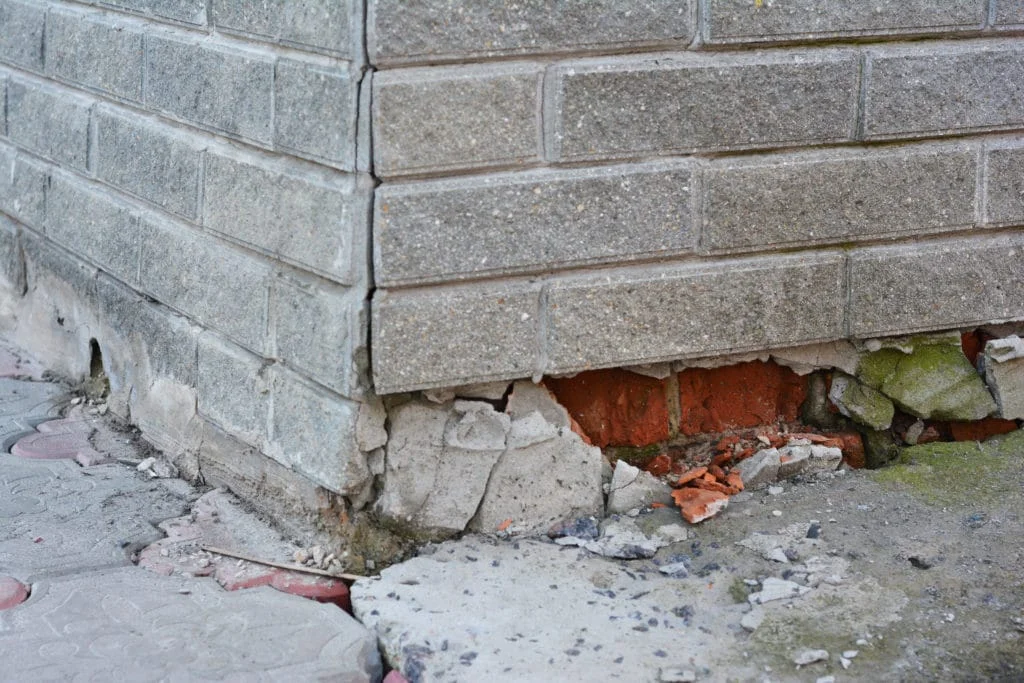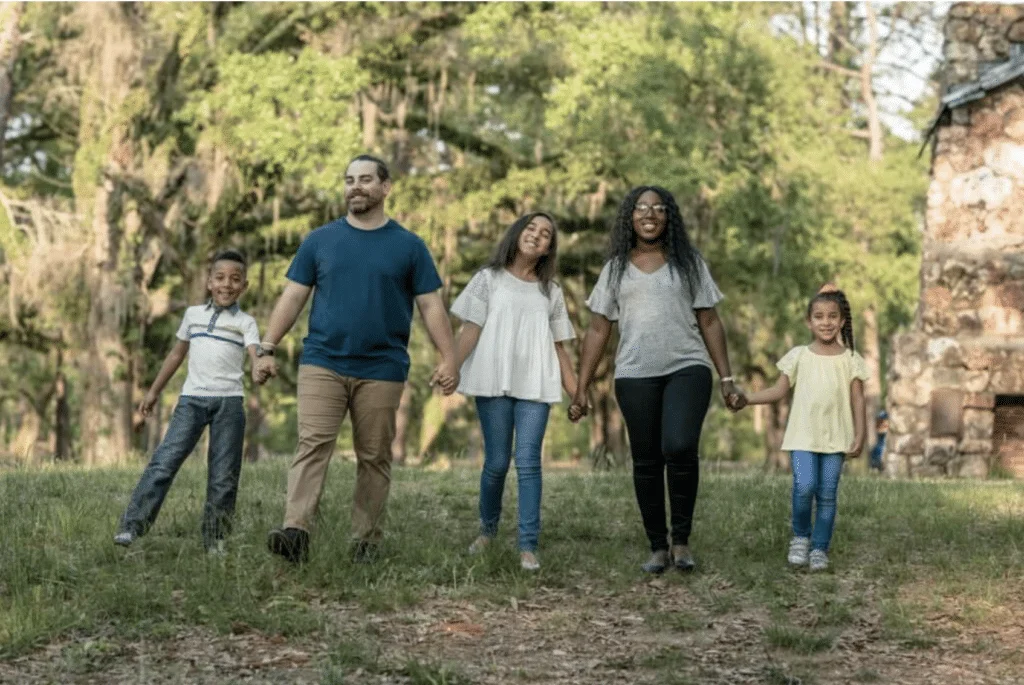When someone in your family passes away it can be one of the most trying moments of your life. Aside from the emotional stress, this loss can come with some heavy responsibilities in the form of an inherited house.
If you’ve inherited a house from a loved one, there are a lot of things to take into account. As the estate’s benefactor, you’re presented with two options regarding what you could do with the house— keep it or sell it.
What Do I Need to Do Before I Move into the House?
Before you decide to move in, think about all the costs associated with an inherited property. How much equity is in the home? Was the mortgage paid off?
What type of property taxes are in the area? What condition is it in? If you decide to move into a house that has damage, you must repair it before the home can be insured. Unfortunately, this bill will be left for you to take care of.
If the mortgage has not been paid off, it could result in forcing you to pay a higher payment than your budget allows. Before you decide, figure out what sort of payments you’ll have to pay on the home and whether or not you can afford it.
Am I Able to Sell the House That I Inherited?
It is common for the property’s benefactors to decide on selling the home and splitting the profit amongst them. While it’s likely this is the easiest option, it doesn’t come without costs of its own.
Aside from any repairs, heating and electricity, insurance, and property taxes must be paid even if no one is living in the home. In order to ensure the house will sell, general upkeep including yard work must be sustained, and therefore cost you time and money.

Also remember, if you sell the house using a real estate agent, it is not free. In fact, it is typical for a realtor to charge 6 percent of the sale for a commission fee.
It can end up being extremely expensive considering a realtor cannot guarantee the house will sell quickly.
Before you decide whether or not to sell, consider the following questions:
Am I Able to Cover the Mortgage Payments?
This is a vital consideration. If the home as a mortgage or second mortgage on it, you will now be responsible for those payments.
The home is the collateral for those loans, so it will go into foreclosure if you fail to make the payments. If you are not able to manage the mortgage, you will want to sell it as quickly as possible.
Do I Have Any Legal Responsibilities?
An inability to pay the property tax bill or a court judgment may have resulted in a lien. When you sell an inherited house, these will be paid when the home sells.

The condition of the home may also lead to certain legal responsibilities. If the current condition presents a risk to the community, you may have liabilities to consider, as with any property that is vacant for an extended time.
In these cases, selling it quickly or fixing the hazards is advisable to prevent someone from getting hurt, even if they were trespassing.
Was it a Rental Property Under the Previous Owner?
Is someone currently living in the home as a renter, or did your loved one have a live-in arrangement with a friend or housekeeper?
Both ethically and legally, you need to understand the rights of anyone who shared the personal residence for whatever reason. You will not just be able to kick them to the curb because the original owner has passed away.
The rules will vary by state. California, in particular, is well-known for its substantial renter rights. It would help if you looked at the regulations in your area to reduce the risk of a lawsuit.
If they have a written lease, you will likely have to honor it as long as they make their payments. If you’re a reluctant landlord who’d instead not get into property management, know that it is possible to sell inherited homes with renters.
Tenant injuries, collecting late rent payments, renters trashing the place? That all becomes the new owner’s responsibility.
It is also possible that if this renter has good credit and financial means, you may be able to agree on the purchase price of the home. This is usually not the case, though.
Does it Need Major Repairs (New Roof, HVAC)?
Major repairs may also factor into if and how you sell an inherited home. If you don’t make the repairs, you will not sell for best market value on the open market.
Generally, you don’t have to go through the time-consuming task of getting estimates to know if you will have a significant repair bill on your hands.
According to the HowStuffWorks Home Edition, some of the most costly repairs are:
- Foundation repair
- New roof or significant roof repair
- New siding
- HVAC
- Water and Sewage problems
- New septic system
- Deck replacement
- Driveway replacement
- Smoke or water damage
- Fallen trees that damaged the home

If any of these are an issue, this will significantly impact the current market value.
How to Sell an Inherited House Fast
If after considering the questions above you feel like selling your inherited house is your best option, read on learn how this process works.
1. Establish the Status of the Home Transfer
There are three ways someone usually transfers an inherited home.
Probate – Probate usually happens if your loved one doesn’t have a legal will. In these cases, a court considers the best interests of the deceased person. They look at the various people who could claim the home as well as personal belongings and try to sort it all out in the fairest way possible.
During this time, they also make sure that your loved one’s debtors are paid before you claim an inheritance. Probate laws are state-specific and can take as long as 24 months.
In some cases, the courts will order the sale of the home so that money can be split among relatives. Probate is the most expensive way to transfer property and usually results in descendants getting a fraction of the estate.
Transfer on Death Deed – Probate may be avoidable if the loved one planned ahead and created a transfer on death deed, also called a beneficiary deed. If you’ve inherited the home this way, it’s yours, and you can probably sell it.
Living Trust – By far, the best scenario for you is the living trust. This allows a seamless transition and often avoids taxes. A trust is a legal document that stipulated who manages the selling of the inherited house so that siblings, etc., can split the money.
2. Evaluate Tax Implications
Here are some that most descendants will need to consider. Our goal is only to give a general overview of tax during inheritance, if you have questions you should seek professional tax help.
Estate Tax – According to the IRS, estate tax is “a tax on your right to transfer property at your death…. the includible property may consist of cash and securities, real estate, insurance, trusts, annuities, business interests, and other assets.”
Capital Gains Tax – Capital Gains tax can be tricky. Let’s say you sell an inherited home for more than its the basis of the property. That’s the fair market value when you inherited it. You could be on the hook for capital gains tax, according to the Internal Revenue Service.
For example, if the home is in rough condition, and you choose to fix it up so you can sell the inherited home for market value, you’re selling it for more than the basis of property (the value when you inherited it).
In the IRS’s eyes, that’s can be equivalent to taxable income.
Property Tax – If you inherit a home, you now have to pay property tax on it. If any taxes went unpaid in previous years, as is expected, you would need to pay back taxes as well.
3. Establish if You’re the Personal Representative
Either the deceased or the courts will appoint a personal representative. This person has many duties regarding the inherited house.
They must notify creditors of the passing to allow them to make claims on the property to cover debts. In some cases, they may choose to do this or write them off.
This personal representative needs to pay the creditors first before anyone inherits anything. If there are not enough liquid assets to pay creditors, they will need to sell the inherited house.

This can seem daunting, but when someone passes, it has to be done. That’s why people are usually careful who they make the personal representative.
It needs to be a person who is organized and can get this done. Here are some accounts to consider.
- Banking and savings accounts
- Income and retirement accounts
- Primary Mortgage account
- Second mortgage
- Reverse mortgage
- Property taxes
- Utilities
- Medical bills
- Credit card statements
- Insurance policies
- Household services (gardener, housekeeper)
- HOA
If someone provided a service, you’ll need to make sure they get paid.
4. Civilly Address Any Disagreements
Sometimes people who plan ahead make the mistake of giving an equal share of responsibility to two or more siblings. Or this just happens naturally upon a person’s death.
You all likely love each other, so you don’t want to let this spiral into broken relationships. It’s unfortunate when that happens and can usually be avoided.

Sometimes siblings, nieces, cousins, or whoever was supposed to inherit the house fight for years over what to do with the property. During that time, the home may fall into disrepair.
So what happens in these cases of multiple heirs who all have a say? If the property cannot be equally split and a buy-out is not an option, the courts could force a sale.
The best thing to do is to sit down with everyone before it gets to that point. Talk about who is responsible for what, and you’ll split the proceeds.
If you’re expecting one person to take on more responsibility, it’s usually fair that they get a little more in addition to having any expenses related to making the home market-ready. Usually, the faster you all can sell the home you inherited, the better.
5. Hire a Mediator, if Needed
It’s common for someone to want to keep the home, but this isn’t always financially reasonable. Professional mediators are experienced in helping families work through disagreements while trying to maintain the family relationship.
6. Update the Homeowner’s Policy
Vacant homes can be vandalized. And when a home is vacant, a lot of damage can be done like stripping out the copper wires, breaking all the windows, or taking a sledgehammer to the walls for fun. You also have the possibility of animals taking up residence.
Insurers adjust the rates up if a home spends some time vacant to account for this probability. If you do not tell an insurer and acquire a vacant home policy, they may refuse to pay for damages.
You may also need to consider setting up real-time security monitoring, for example, installing CCTVs, alarm systems, doorbell cameras, etc. for the home so that people know they’re being watched. And you can intervene quickly before something like this happens.
7. Distribute Personal Property
If there are personal belonging in the home, you probably do not want to sell them with it. Determine how you will distribute them. In some cases, this is decided by the courts or a will, which you need to follow.
You also need to see if any of them belong to someone. For example, the deceased may have borrowed a riding lawnmower and not returned it.
You don’t want to give that away to someone else. Are some items sentimental to a certain person? You may want to let that person have them. Whatever is left could be sold in an estate sale. And the heirs can split the proceeds.
8. Prepare the Inherited Home for Sale
The home will need a thorough cleaning. And it may need repairs. If you plan to put the home on the market, you will need to make the house market-ready to get market value for it.

Depending on the condition of the home, this may require significant time and money investment.
If you’re splitting home sale proceeds among siblings, make sure all of these expenses are accounted for, so the person who prepares the home doesn’t get short-changed.
9. Decide What Method You Will Use to Sell the Inherited House
You can list the inherited house on the MLS with a realtor, go the FSBO route, or sell the house as-is to a cash buyer.
It may be a new concept to you and other heirs, but you should seriously consider selling the house as-is to a cash buyer. The sooner you make a decision about this, the better.
You don’t want to start making repairs, then know it’s too much and opt for an as-is sale. That would be throwing away money.
Here are some reasons to consider an as-is sale.
- You’ll save a lot of time.
- You can sell the home faster… if you know the best way to sell as-is. We’ll share that in a minute.
- You can end up with more money to distribute among the beneficiaries since you’re not investing in the cleanup, repair, extra mortgage payments, higher insurance premiums, vandalism risk, etc.
- You can reduce strain on family relationships
- You can get your money in cash
- You can usually avoid capital gains because you’re selling in the same condition you inherited it
- Some as-is buyers will even buy homes that don’t have clear titles, do have renter, etc.
Recognize Your Limits When Selling an Inherited House
Inheriting a house often means the loss of a loved one. That makes it easy to accept an obligation that turns out to be much more than you originally anticipated. Along with the house, you might also inherit:
- Property and capital gains tax matters and the potential for inheritance tax
- Legal issues, such as unpaid condominium fees
- Transferring the title, which can be a real pitfall if multiple beneficiaries are involved
One couple who inherited a house was surprised to learn that a second mortgage had been taken out on it. The amount owed on the second mortgage, for which they were on the hook? A whopping $30,000.
The circumstances surrounding an inherited house can be challenging enough as is. Consider whether you have the time and emotional capacity to add another property on top of that before making your final decision.
The Fastest Way to Sell an Inherited Home? Sell to HomeGo
There is a solution to all these inconvenient costs, and you could still quickly sell the house you inherited. HomeGo will work with you to give you the highest possible cash offer for your property. Better yet, HomeGo will buy your inherited house as-is— no repairs necessary.
This alone will save valuable time and money. HomeGo will keep your busy schedule in mind and work hard to close the sale of your home in just 7 days. The sale is completed faster than a traditional real estate agent could deliver and HomeGo doesn’t even charge for any commissions.
See your offer in just 3 easy steps:
- Enter your address and get a real cash offer.
- Schedule your brief, in-home or virtual walk-through.
- Receive a cash offer on the spot
HomeGo is ready to approach your situation with care.




